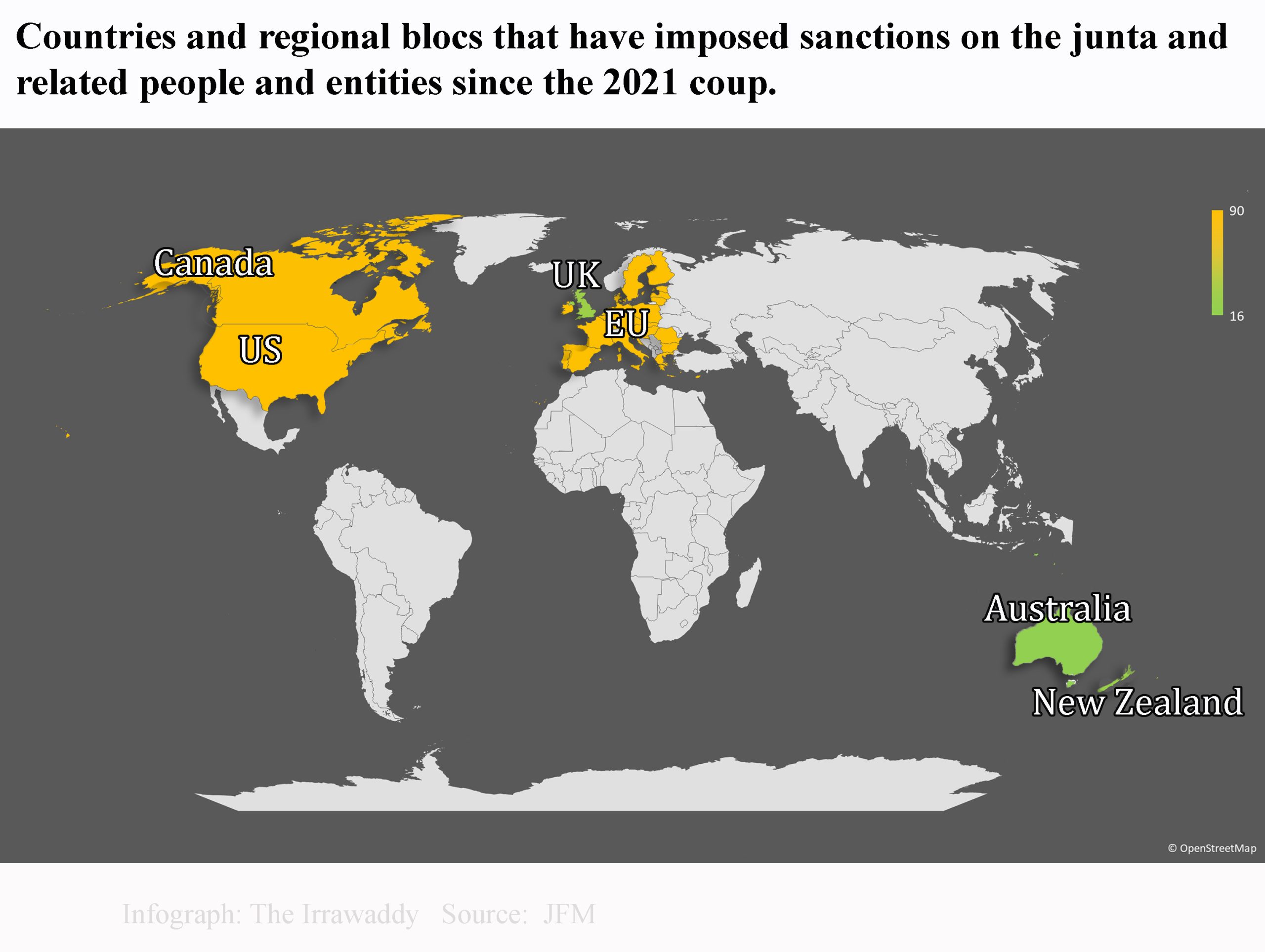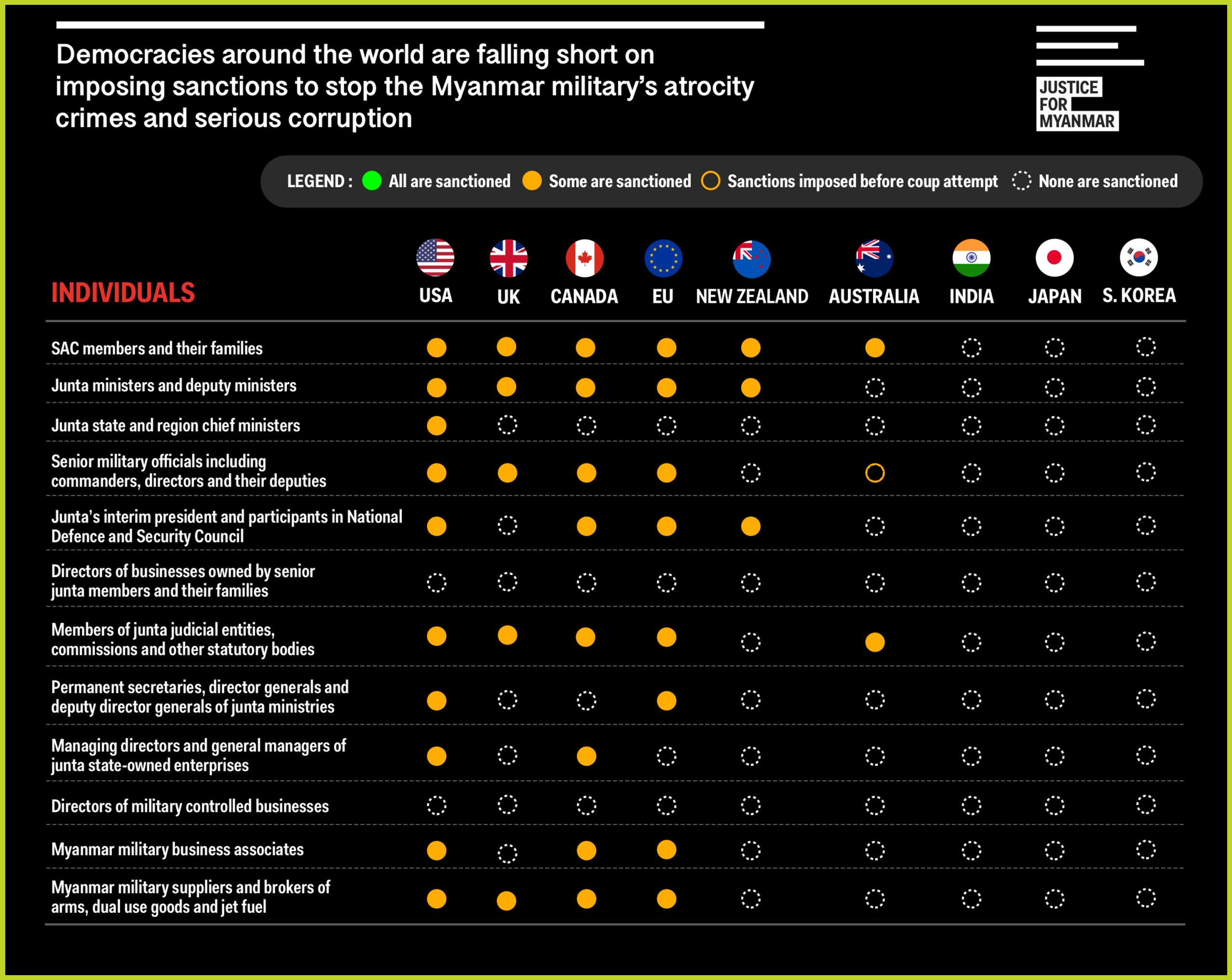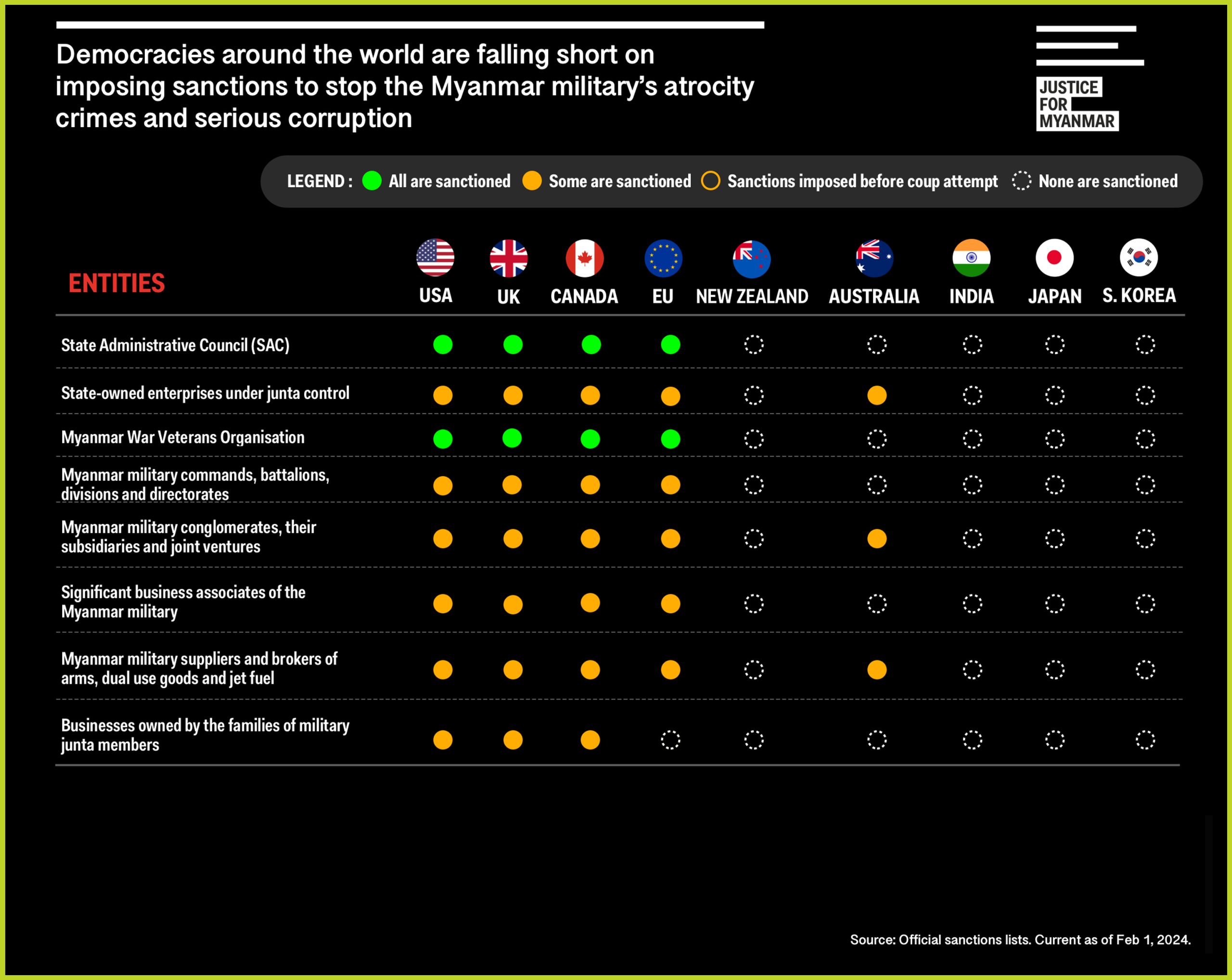Democratic countries around the world are undermining, or failing to support, the struggle by the people of Myanmar to free their country from military rule, the latest research by Justice for Myanmar found.
The advocacy group compared sanctions imposed by democratic countries on junta members, its businesses and those complicit in its crimes and corruption since the coup.
“Democracies around the world are falling short,” it concluded, reiterating its call for coordinated and wide-ranging action by the international community, including a global arms embargo and targeted sanctions, to prevent complicity in atrocities.
“Targeted sanctions are an important tool for the international community to deploy in support of the Myanmar people’s rejection of the attempted coup and struggle to build a federal democracy,” it explained.
The report compares sanctions imposed on the junta by the United States, the United Kingdom, Canada, the European Union, Australia, New Zealand, India, Japan and South Korea.
“Many key military-controlled businesses, their directors and associates have … yet to be sanctioned, despite their well-documented links to the Myanmar military’s international crimes,” the report notes.
It notes that the owner of Mytel mobile network, Telecom International Myanmar, has not been sanctioned in any jurisdiction even though it is co-owned by military conglomerate Myanmar Economic Corporation (MEC), which has been sanctioned by Australia, Canada, the EU, the UK and the US.
“Mytel provides a lucrative source of revenue for the terrorist junta and supports the military’s communications and surveillance capabilities,” the report explains.
Many key military-controlled businesses, their directors and associates have also yet to be sanctioned, despite their well-documented links to the junta’s crimes, the report says.
“Sanctions have lacked coordination and have failed to cover whole networks of companies. Not nearly enough has been done to designate individuals and entities that continue to provide the junta with funds, arms, equipment, technology and jet fuel,” the report notes.
India, Japan and South Korea have not imposed any targeted sanctions on the junta or its supporters since the coup.
“Through their inaction – at best – and complicity, at worst, India, Japan and South Korea are failing to uphold their human rights responsibilities and failing the people of Myanmar. We call on them to change direction and support democracy and human rights in Myanmar,” Justice for Myanmar said.
Although money made from the oil and gas sector in Myanmar is bankrolling the junta and enabling it to continue its campaign of atrocities, only the EU has fully sanctioned state-owned Myanma Oil and Gas Enterprise (MOGE) – the junta’s single biggest source of foreign revenue – while the US has prohibited financial services with it, the report notes.
Since the coup, the US imposed sanctions on 90 individuals and 49 entities, the UK sanctioned 23 individuals and 31 entities, Canada sanctioned 88 individuals and 41 entities and the EU sanctioned 89 individuals and 21 entities, according to the report. New Zealand has sanctioned 21 individuals but no entities and Australia has sanctioned 16 individuals and seven entities.
The individuals sanctioned include members of the junta’s State Administration Council and their families, junta ministers, senior military officers, and directors of businesses owned by junta members, as well as arms, dual-use good and jet-fuel suppliers and brokers.
Despite the significant involvement of Australian-owned and led companies in the mining sector, Australia has so far failed to sanction any junta-controlled agencies or key individuals involved in mining. While New Zealand was swift to suspend high-level contact with the junta, it has failed to follow this up with targeted sanctions, except for travel bans imposed in 2021 and 2022 on 21 people, the report says.
The lack of action from India, Japan and South Korea since the coup has allowed businesses from the three countries to collaborate with a junta committing war crimes.
Japanese state-backed Y Complex makes payments to the Myanmar Army’s Office of the Quartermaster General. although payments have reportedly been suspended since February 1, 2021, it said.
South Korea’s state-owned KOGAS and POSCO International are collaborating with junta-controlled Myanma Oil and Gas Enterprise (MOGE) in the Shwe Gas project, a major source of funds for the junta.
India’s majority state-owned Bharat Electronics Limited has repeatedly transferred equipment to the Myanmar military since the coup.
The junta is escalating its attacks on civilians, including aerial bombardments, artillery strikes, arson attacks, and extrajudicial killings.
Earlier this week, three women, one of whom was pregnant, and three young children were slain by regime soldiers in Karenni (Kayah) State’s Shadaw Township and four children were killed by an airstrike on a school in the state’s Demoso Township. Another junta airstrike last month killed 17 people, including nine children, gathered to attend church.
Since the coup, junta troops have killed more than 4,500 civilians, including 553 children, the Assistance Association for Political Prisoners said.




















